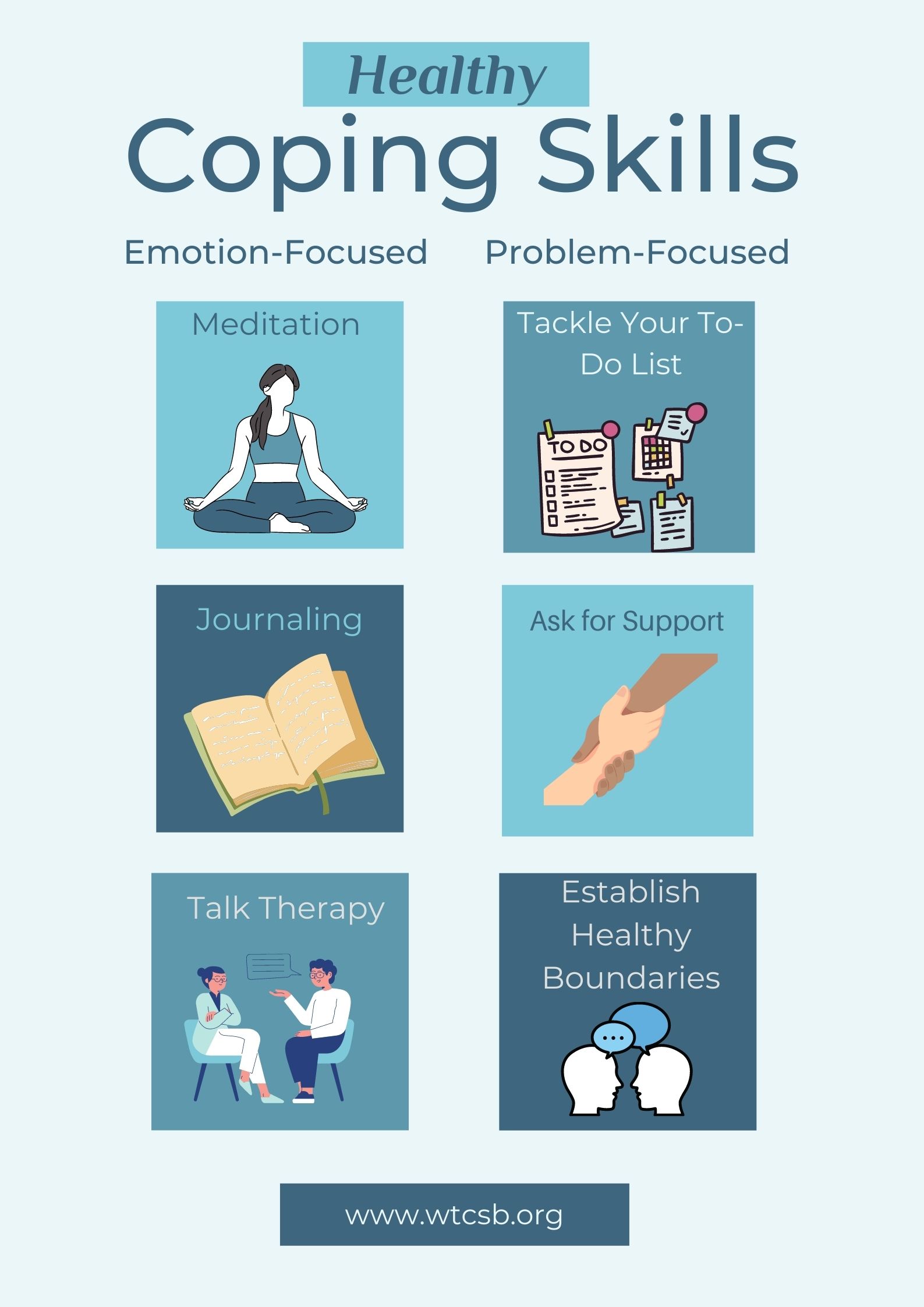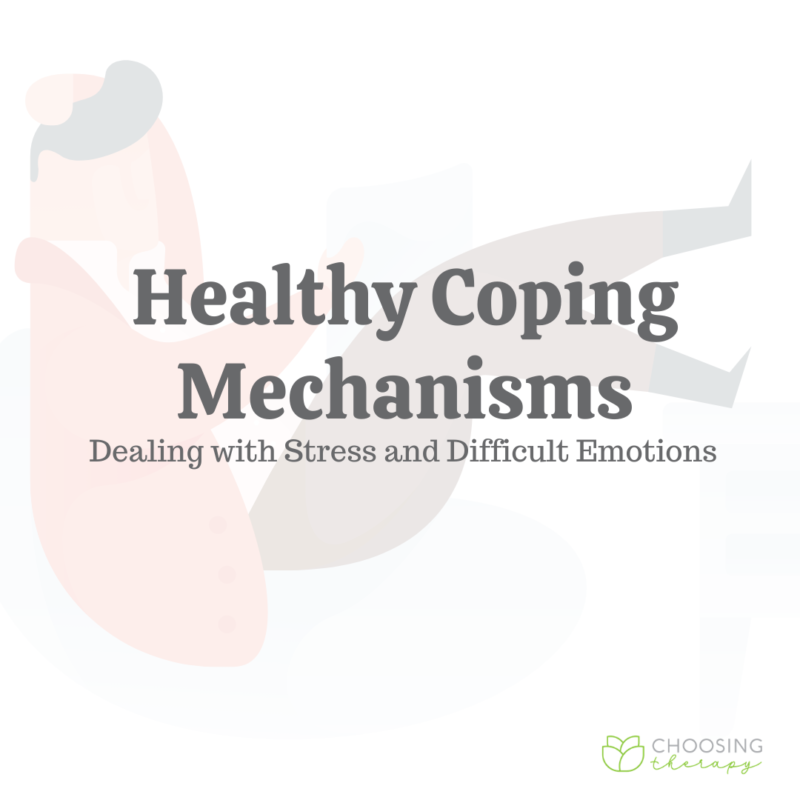“Healthy Coping Mechanisms: Your Guide to Navigating Life’s Challenges
On this special occasion, we are delighted to explore the fascinating topic of Healthy Coping Mechanisms: Your Guide to Navigating Life’s Challenges. Let’s weave together engaging insights and offer a fresh perspective to our readers.
About Video Healthy Coping Mechanisms: Your Guide to Navigating Life’s Challenges
Healthy Coping Mechanisms: Your Guide to Navigating Life’s Challenges
:max_bytes(150000):strip_icc()/forty-healthy-coping-skills-4586742_v61-4e1f6f67b5a14bf1abd0e3a472a069d2.png)
Life is a journey filled with ups and downs, moments of joy and times of stress. How we navigate these challenges significantly impacts our overall well-being. Healthy coping mechanisms are the strategies we use to manage difficult emotions, reduce stress, and maintain a sense of balance in our lives. Unlike unhealthy coping mechanisms, which may offer temporary relief but lead to long-term harm, healthy coping mechanisms promote resilience, emotional growth, and overall mental and physical health.
Understanding Coping Mechanisms
Coping mechanisms are the conscious and unconscious strategies we employ to deal with stress, trauma, or challenging emotions. They can be broadly categorized into two types:
-
Problem-Focused Coping: These mechanisms involve directly addressing the source of stress. For example, if you’re stressed about a work deadline, a problem-focused approach would be to create a schedule, break down the task into smaller steps, and work diligently to meet the deadline.
-
Emotion-Focused Coping: These mechanisms focus on managing the emotions associated with stress. This doesn’t necessarily mean solving the problem, but rather changing how you feel about it. Examples include practicing mindfulness, seeking social support, or engaging in activities that bring you joy.

The Importance of Healthy Coping Mechanisms
Developing and utilizing healthy coping mechanisms is crucial for several reasons:

Stress Reduction: Healthy coping strategies help lower stress hormones like cortisol, reducing the negative impact of stress on your body and mind.
-
Emotional Regulation: They enable you to manage difficult emotions like anger, sadness, anxiety, and fear in a constructive way.
-
Improved Mental Health: Consistent use of healthy coping mechanisms can prevent or alleviate symptoms of mental health conditions like depression and anxiety.
-
Enhanced Resilience: They build your ability to bounce back from adversity, making you more adaptable and resourceful in the face of challenges.
-
Better Physical Health: Chronic stress can lead to various physical health problems. Healthy coping mechanisms can mitigate these risks by promoting relaxation and overall well-being.
-
Stronger Relationships: When you manage your emotions effectively, you’re better able to communicate and connect with others, leading to healthier and more fulfilling relationships.

Examples of Healthy Coping Mechanisms
Here’s a detailed look at some effective and healthy coping mechanisms:
-
Mindfulness and Meditation:
- Description: Mindfulness involves paying attention to the present moment without judgment. Meditation is a practice that helps cultivate mindfulness.
- How it Helps: Reduces stress, calms the mind, improves focus, and enhances emotional awareness.
- How to Practice: Find a quiet space, sit comfortably, and focus on your breath. When your mind wanders, gently redirect your attention back to your breath. There are also numerous guided meditation apps and resources available.
-
Physical Activity:
- Description: Engaging in regular exercise or physical activity.
- How it Helps: Releases endorphins (natural mood boosters), reduces stress hormones, improves sleep, and boosts self-esteem.
- Examples: Walking, running, swimming, dancing, yoga, hiking, or playing sports.
-
Spending Time in Nature:
- Description: Immersing yourself in natural environments.
- How it Helps: Reduces stress, improves mood, lowers blood pressure, and enhances overall well-being.
- Examples: Taking a walk in a park, hiking in the mountains, sitting by a lake, or simply spending time in your garden.
-
Creative Expression:
- Description: Engaging in activities that allow you to express your thoughts and feelings creatively.
- How it Helps: Provides an outlet for emotions, promotes self-discovery, reduces stress, and boosts self-esteem.
- Examples: Painting, drawing, writing, playing music, singing, dancing, sculpting, or crafting.
-
Journaling:
- Description: Writing down your thoughts and feelings in a journal.
- How it Helps: Helps process emotions, gain clarity, identify patterns, and track progress.
- How to Practice: Write freely without censoring yourself. Focus on your thoughts, feelings, and experiences.
-
Social Support:
- Description: Connecting with supportive friends, family members, or support groups.
- How it Helps: Provides emotional support, reduces feelings of isolation, offers different perspectives, and boosts resilience.
- How to Practice: Reach out to loved ones, share your feelings, and ask for help when needed.
-
Setting Boundaries:
- Description: Establishing clear limits in your relationships and activities.
- How it Helps: Reduces stress, protects your time and energy, and promotes self-respect.
- How to Practice: Learn to say "no" to requests that drain you, communicate your needs clearly, and prioritize your well-being.
-
Practicing Gratitude:
- Description: Focusing on and appreciating the positive aspects of your life.
- How it Helps: Improves mood, increases happiness, reduces stress, and fosters a sense of contentment.
- How to Practice: Keep a gratitude journal, express appreciation to others, or simply take time each day to reflect on what you’re grateful for.
-
Learning New Skills:
- Description: Engaging in activities that challenge your mind and help you grow.
- How it Helps: Boosts self-esteem, provides a sense of accomplishment, and distracts from negative thoughts.
- Examples: Taking a class, learning a new language, playing a musical instrument, or developing a new hobby.
-
Time Management:
- Description: Organizing your time and tasks effectively.
- How it Helps: Reduces stress, increases productivity, and provides a sense of control.
- How to Practice: Create a schedule, prioritize tasks, break down large tasks into smaller steps, and avoid procrastination.
-
Progressive Muscle Relaxation:
- Description: A technique that involves tensing and relaxing different muscle groups in your body.
- How it Helps: Reduces muscle tension, lowers blood pressure, and promotes relaxation.
- How to Practice: Find a quiet space, lie down comfortably, and follow a guided relaxation script or audio.
-
Deep Breathing Exercises:
- Description: Practicing slow, deep breaths to calm your nervous system.
- How it Helps: Reduces stress, lowers heart rate, and promotes relaxation.
- How to Practice: Inhale deeply through your nose, hold for a few seconds, and exhale slowly through your mouth.
-
Engaging in Hobbies:
- Description: Participating in activities you enjoy and find fulfilling.
- How it Helps: Provides a sense of purpose, reduces stress, and boosts happiness.
- Examples: Reading, gardening, cooking, photography, or collecting.
-
Seeking Professional Help:
- Description: Consulting with a therapist, counselor, or other mental health professional.
- How it Helps: Provides support, guidance, and evidence-based treatments for managing stress and mental health conditions.
- When to Seek Help: When stress is overwhelming, impacting your daily life, or when you’re experiencing symptoms of a mental health condition.
Unhealthy Coping Mechanisms to Avoid
It’s equally important to be aware of unhealthy coping mechanisms that can worsen your stress and harm your well-being. These include:
- Substance Abuse: Using alcohol or drugs to numb emotions.
- Emotional Eating: Overeating or undereating in response to stress.
- Social Isolation: Withdrawing from social interactions.
- Procrastination: Delaying tasks and responsibilities.
- Aggression: Expressing anger in destructive ways.
- Self-Harm: Engaging in behaviors that cause physical harm to yourself.
- Excessive Screen Time: Spending excessive amounts of time on electronic devices.
Developing Your Personal Coping Toolkit
The most effective approach is to create a personalized coping toolkit that includes a variety of strategies that work for you. Here’s how:
-
Self-Awareness: Pay attention to your emotions, triggers, and stress responses.
-
Experimentation: Try different coping mechanisms to see what resonates with you.
-
Practice: Regularly practice the strategies you find helpful.
-
Flexibility: Be willing to adapt your coping strategies as your needs change.
-
Balance: Aim for a balance between problem-focused and emotion-focused coping.
-
Self-Compassion: Be kind and understanding towards yourself, especially during difficult times.
Conclusion
Healthy coping mechanisms are essential tools for navigating life’s challenges and maintaining overall well-being. By understanding the importance of these strategies, exploring different options, and creating a personalized coping toolkit, you can build resilience, manage stress effectively, and live a more fulfilling life. Remember that developing healthy coping skills is an ongoing process, and it’s okay to seek support from others when needed.
I hope this article is helpful!

